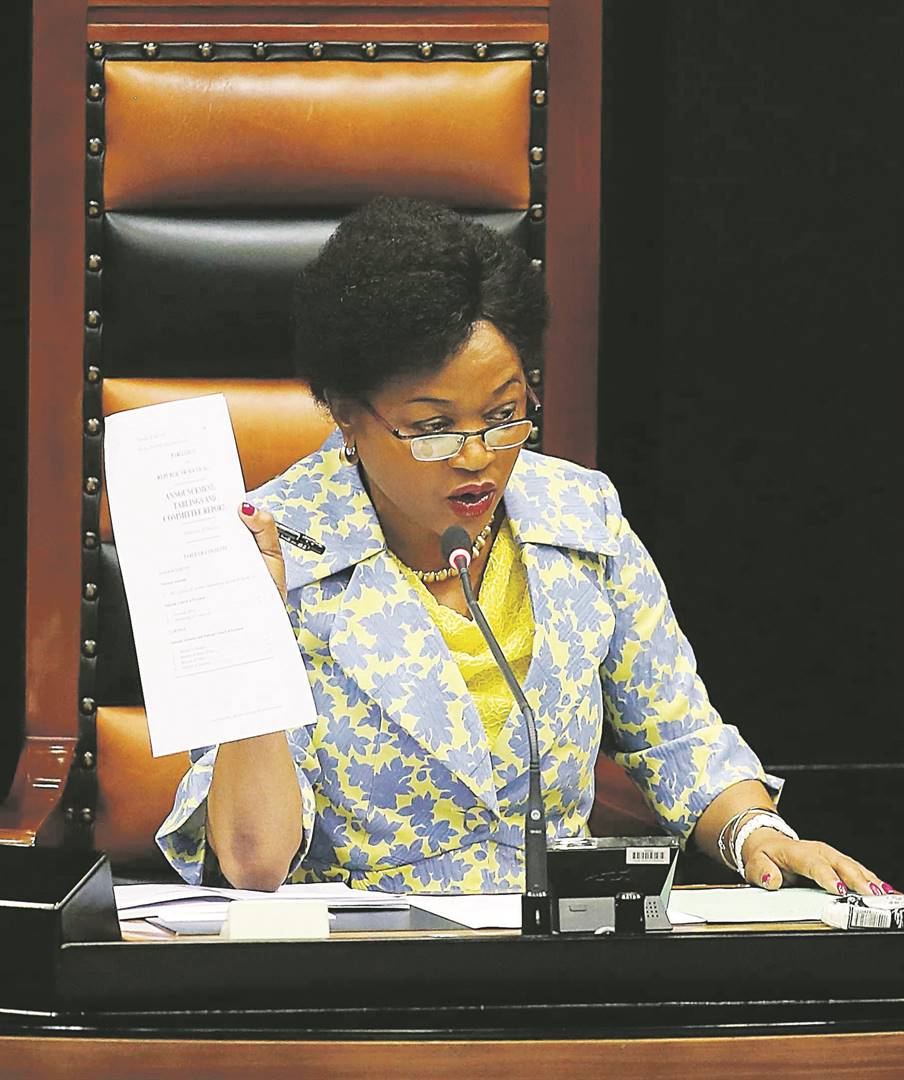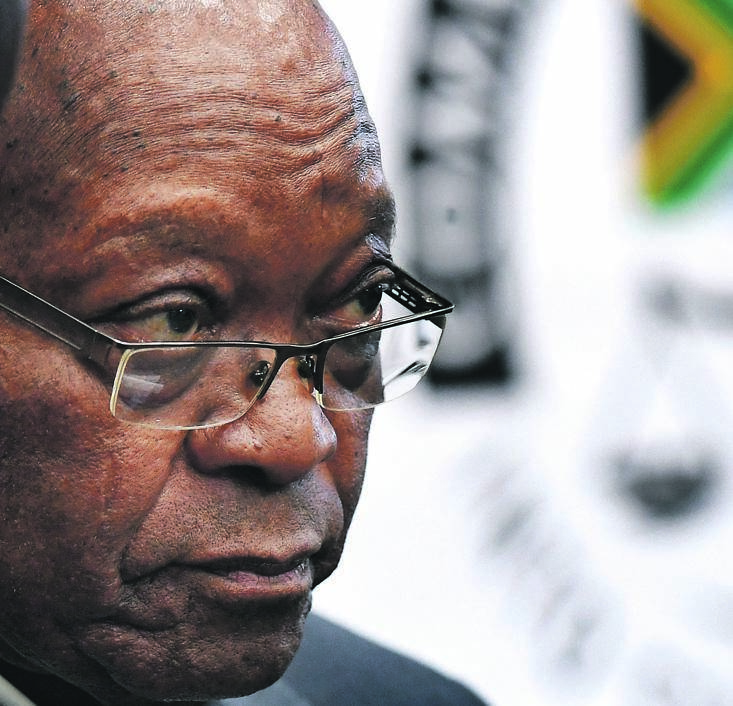
There has been plenty of advice on how to strengthen the institution. Now let’s implement
The problem with Parliament’s failure to exercise effective oversight over the executive was clearly exposed by former Speaker Baleka Mbete’s dismal performance in her Al-Jazeera interview last week.
Mbete has clearly not recovered from the myopia inflicted on the ANC during the Jacob Zuma years – see no evil, hear no evil, speak no evil.
In the post-Zuma/state capture era, we are rightly fixated with rebuilding institutions in the criminal justice sphere, revenue collection services and the whole state-owned enterprise sector, yet little focus is placed on getting the primary institution charged with oversight of these organs of state fit for purpose.
Parliament deliberately closed its eyes and ears to the many, many transgressions by the Zuma administration.
The Nkandla debacle is perhaps the best example of this, where Parliament was found by the Constitutional Court to have failed in its duty to hold the president to account.
Read: A dismissive Mbete ‘embarrasses’ SA in Al Jazeera interview
Subsequently, Parliament did very little to remedy its defects, and even then, only at the insistence of the courts when it introduced processes for the impeachment of the president.
We would be wrong to assume that this denigration of Parliament began with Zuma.
There was extensive evidence of undue interference by members of the executive in stymying the investigation by the public accounts committee into the arms deal in 2000.
Although Zuma may be about to face charges of fraud and corruption relating to the arms deal, we have failed to uncover the truth of the myriad aspects of this deal.
The so-called findings of the Seriti commission were recently set aside by the courts. Accountability failed in the arms deal.
The Constitution is unambiguous about what it expects from Parliament to ensure that we have an efficient state geared towards realising the constitutional vision.
Parliament has consistently obfuscated this responsibility, in deference to the will of the executive.
It has been repeatedly noted that our pure proportional representation (PR) electoral system, with closed party lists, is designed to emaciate Parliament.
MPs from the majority party see it as career-limiting to challenge their political seniors who hold Cabinet office.
Sycophancy becomes the order of the day. This, de facto, leaves the responsibility for oversight to members of opposition parties only.
There have been numerous calls for a review of our electoral system over many years.
In his final speech in Parliament in March 1999, then president Nelson Mandela called for us to revisit the closed party list system.
This was followed by the report by Frederik van Zyl Slabbert in 2000 which recommended a mixed constituency and PR model.
Both the Independent Panel Assessment of Parliament, headed by Pregs Govender in 2009, and the High Level Panel, chaired by Kgalema Motlanthe in 2017, strongly recommended that the electoral system be reviewed and amended.
Parliament has so far failed to even engage on these proposals.
However, we must not be lulled into believing that changing the electoral system is a panacea or “silver bullet” that will magically ensure that parliamentary oversight is enhanced.
This must be accompanied by a shift in our political culture whereby all MPs accept their constitutional responsibility to hold the executive and organs of state to account.
Evidence from local government level, where we have a mixed ward and PR model, shows that accountability and transparency, let alone service delivery, remains elusive.
As voters and citizens, we need to become more involved in our democracy – the fight for freedom was not just to secure the franchise but to be able to shape the society we want.
Our Constitution requires us to entrench a “participatory democracy”, and not just be passive bystanders after handing power to politicians.
Any electoral change needs to be accompanied by a cultural shift in how Parliament operates.
In its founding provisions, the Constitution imposes a responsibility to promote a multiparty democracy where all voices will be heard, but the reality in Parliament is that the principle of simple majoritarianism prevails.
MPs would be well advised to consider the pronouncements of the Constitutional Court in the “secret ballot” case, where they were reminded of their duties and responsibilities.
An example of this simple majoritarianism is the decision, since 2014, for all the presiding officers of Parliament to be drawn from the majority party alone.
This was exacerbated by the choice of a member of the ANC’s top six officials, Mbete (who was party chairperson), to serve as Speaker, having previously been deputy Speaker from 1996 to 2004 and Speaker from 2004 to 2008.
It creates an unbearable tension between political and constitutional offices, which Mbete was singularly unable to manage.
Parliament should ensure that, in future, its presiding officers do not occupy high office in any political party.
In addition to the independent and high-level panel reports, in 1999 Parliament had also commissioned Professor Hugh Corder to assess parliamentary oversight and accountability.
Corder’s recommendations have, like most, been shelved.
There are two recommendations that I believe we should revisit.
The first proposed an Accountability Standards Act to give teeth to parliamentary committees by providing an authoritative and mandatory framework for oversight, and ensuring that accountability goes beyond providing explanations and actually rectifies that which has gone wrong.
In other words, there would be consequence management through what is called “amendatory accountability” – just as with the Public Finance Management Act in respect of public servants, elected representatives should be held liable for corruption or financial misconduct under the threat of fines and imprisonment.
Such a mandatory legal framework would ensure that MPs have little discretion in whether to hold the executive to account.
Secondly, Corder suggested that legislation be passed to outline the accountability and independence of institutions supporting constitutional democracy (ISCDs).
This would provide for the financial independence of ISCDs and establish a standing committee on constitutional institutions, which would process all reports from these bodies and conduct the selection of members to be appointed to these bodies.
They would also hold hearings and call recalcitrant government departments and organs of state to account.
This would give Parliament an opportunity to ensure that there were consequences for failures by public servants and elected officials.
In 2004, Parliament, perhaps taking its cue from Corder’s report, adopted an oversight and accountability model, recognising that oversight is a constitutionally mandated function: “Oversight entails the informal and formal, watchful, strategic and structured scrutiny exercised by legislatures in respect of the implementation of laws, the application of the budget, and the strict observance of statutes and the Constitution.”
Motlanthe’s panel made wide-ranging recommendations (in addition to electoral reform) to strengthen ISCDs, enhance access to information and promote the realisation of socioeconomic rights and meaningful public participation in the legislative process.
There has been no shortage of advice to Parliament on how to fix its house.
Motlanthe’s recommendations are currently receiving attention in Parliament.
We need to ensure that they are implemented so that Parliament does indeed live up to its constitutional mandate of ensuring an open, responsive and transparent democracy.
Naidoo is executive secretary of the Council for the Advancement of the SA Constitution
 | ||||||||||||||||||||||||||
Get in touchCity Press | ||||||||||||||||||||||||||
| ||||||||||||||||||||||||||
| Rise above the clutter | Choose your news | City Press in your inbox | ||||||||||||||||||||||||||
| City Press is an agenda-setting South African news brand that publishes across platforms. Its flagship print edition is distributed on a Sunday. |




 Publications
Publications
 Partners
Partners









